Does Mileage Matter? Hottest Porsche Taycan's Range Revealed, Debate Ensues

As one would expect with an electric model, the first iterations of the Porsche Taycan revealed to the public were the high-performing Turbo and Turbo S variants. Hotter models land with a bigger splash (and earn their maker more money), so it was no surprise to see Porsche keep lowlier versions on the back burner. One surprise was the Turbo’s range: 201 miles, drawn from a 93.4 kWh battery pack. Hardly an industry-beating figure, especially for a six-figure car.
Now, the EPA has bestowed a rating on the Turbo’s more muscular sibling, the Turbo S. With an identical battery and extra oomph on tap — 750 horsepower — the Turbo S manages a 192-mile figure. Deal breaker, or irrelevant?
Sporting a duo of potent electric motors powering all four wheels and a 0-62 mph time of 2.8 seconds, the Turbo S is not your sister-in-law’s Leaf. While neither emit any CO2 from their non-existent tailpipes, the Porsche is, at its core, a refined driving machine that just happens to not pollute.
Performance, not efficiency, is Porsche’s topmost concern here, and that may be just fine with those willing to plunk down the necessary $187,000-plus for a Turbo S.
Yet range remains a selling point and a point of consternation for those who don’t have it. At roughly 5,200 pounds, the Taycan Turbo S is a hefty beast, outweighing most SUVs. Were that sizeable battery pack put to work maximizing range instead of feeding the hungriest of motors, Porsche might have a vehicle capable of challenging Tesla in the range wars, but it wouldn’t be much of a Porsche.
As it stands, the EPA rates the Turbo S at the equivalent of 68 mpg (MPGe). In contrast, the Tesla Model S Performance with its 100 kWh pack earns a 97 MPGe rating and goes the distance at 326 miles.
Environmentalists like to point out that smaller, lighter electric cars with just enough battery to handle day-to-day driving needs are the most efficient automotive solution to the climate issue, and they’re right. 192 miles is more then enough for even a lengthy commute. A robust recharging network and faster charge times would offset concerns of range, but that remains a work in progress. In the meantime, automakers continue chasing ever-higher range figures from ever-larger battery packs. And those packs are not the greenest thing out there.
As with traditional muscle cars, EV performance still demands the consumption of finite resources, just of a different kind.
[Images: Porsche AG]

More by Steph Willems
Latest Car Reviews
Read moreLatest Product Reviews
Read moreRecent Comments
- Kwik_Shift_Pro4X Wowzers!
- SCE to AUX It's a trainwreck, Norfolk Southern style.
- Arthur Dailey An uncle of mine purchases a 2nd generation Accord sedan. At the time, at least in Canada the hatchback Accord was seen more often than the sedan. After driving it, I became a huge fan. At the time my wife and I were both driving Civics. When I could afford to, we purchased a brand new 1986 (3rd generation) Accord sedan. That is still my wife's all time favourite vehicle of the many that we have had.The only issue we ever had was with the A/C which despite our ordering the car, was a dealer installed option, as was the norm with Hondas in Canada at that time. I eventually sold it to a co-worker. Who then sold it to one of his family members. 15 years later it was still 'going strong'. My uncle came into some money and replaced his Accord with a brand new Jaguar sedan. He had a love/hate relationship with the Jaguar. Loved it when it ran properly. Hated it ever time there was an issue, or he had to pay for maintenance/repairs/parts for it.
- Buickman some stores may have still had some carbon paper on hand?
- Zerofoo I would rather that car companies put the correct engine in the car to start. The "base" engine is almost always there for rental car fodder. Simplifying drivetrains would go a long way to reducing costs. If you want a smaller engine, buy a smaller car. The trend of putting small highly-stressed engines in big cars sucks. Hybrid drivetrains are even worse - complex, heavy, and certain to cause future high repair bills. All for a few MPG. Finally, to hell with CAFE standards. Just divide the fines among all the units you sell and get some lobbyists to get rid of the standards the Federal Government has no constitutional right to set anyway.



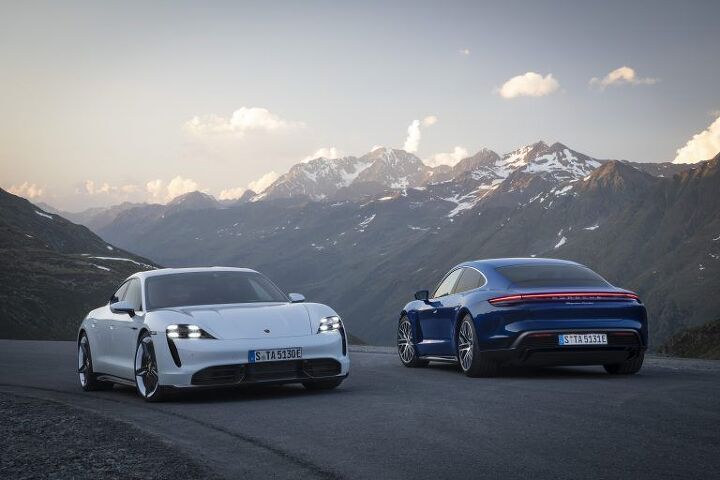


















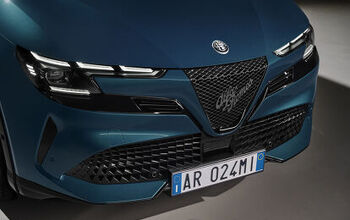
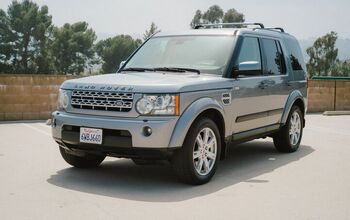






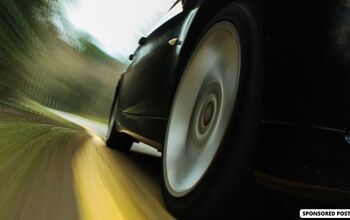



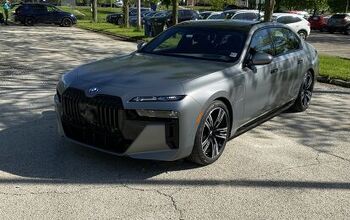
Comments
Join the conversation
So whose 2.0l does it use now? The article doesn't say. I'm glad it's not GM, but whose is it?
So long as there's no BEV tax incentive for this, who cares. But I bet there's a BEV tax incentive. Grrr.